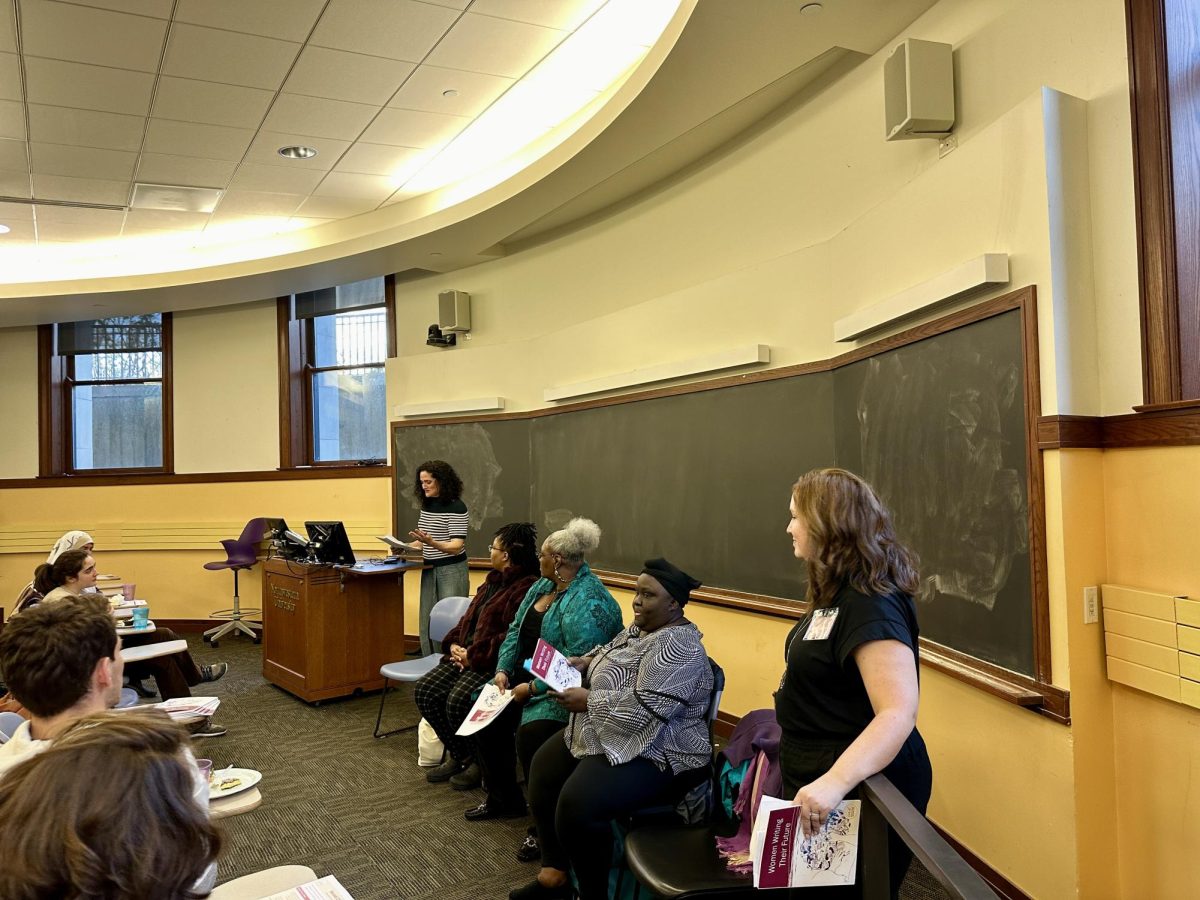“Just love me” is the central idea throughout Women Initiating New Directions Lived Experience Leader Mariah Greer’s poem. The poem was featured in “Women Writing Their Futures,” an anthology of poems written by women at Logan Correctional Center, Cook County Jail and Grace House.
These women wrote their poems as part of a writing workshop in WIND, an organization founded in 2018 that works to inspire women who were formerly incarcerated or at risk of being incarcerated.
“One of the things that I always thought was important was for people to listen to other people’s stories,” founding board member Penny Hirsch said. “When we listen to their stories, we learn a lot about the people and don’t just think of them as just dismissed as a criminal because people are so much more complex than that.
As incarceration rates continue to rise, women are the fastest growing incarcerated population. Incarceration rates of women increased by 525% between 1980 and 2021, according to the Sentencing Project.
Members created WIND to address the root, systemic causes behind climbing female incarceration rates. WIND also offers workshops related to career development, personal finances and etiquette.
According to WIND, common causes behind female incarceration include trauma and low self-esteem that contribute to an increased risk of substance abuse and a lack of education, often ending in unemployment.
“A lot of these women just really never had a fair chance to get the treatment that they deserved when they were young,” Hirsch said. “They never had a chance to get help and all of a sudden they were criminals. That seemed really unfair to me and also like an injustice to the world and also a waste for our society.”
Three years after WIND’s creation, the organization received one Northwestern’s first-ever Racial Equity and Community Partnership Incubator Grants.
The group used the grant to create Bridge, a program designed to help formerly incarcerated women become Lived Experience Leaders within the WIND and Bridge program. LELs are trained to co-facilitate workshops to contribute their experiences in the curriculum, achieve independence and empower other women.
Thursday, WIND hosted a poetry reading and Q&A in conjunction with the NU Women’s Center, the NU Center for Civic Engagement and the Hobart House to celebrate Second Chance Month, which brings awareness to the challenges reentry and advocates for support for formerly incarcerated individuals reentering society.
During the event, LELs read poems featured in WIND’s recently published poetry collection and excerpts from their own books.
LEL Latrice Johnson has served as a “feedback coach” in writing courses for women at Cook County Jail and co-facilitated workshops at Grace House. Johnson, who has long held a passion for writing, said she came to the poetry event without sleep after working a night shift.
“(WIND) gives us a chance to speak to other people that might come behind us and hopefully, they won’t make some of the same mistakes that we did,” Johnson said. “(WIND) gives women a lot of opportunity to speak on what’s going on with them and there’s not a lot of platforms for us to open up like that.”
LEL Queen Brown is an active member of several civic and non-profit organizations and serves as a WIND workshop co-facilitator.
At the event, Brown read her poem, “Who Am I?” and excerpts from her soon to be published book, “A Cry For Help.”
“I do what I do and be a voice for other people because of my suffering. I would like those coming behind me that know that we do recover. There is hope,” Brown said. “It’s like the sky’s the limit with WIND. When we’re there, there’s no big ‘I’s,’ no little ‘you’s.’ We’re just all one. When we get stuck, there’s somebody always on hand to pull us right back in or get us right back where we need to be.”
The needs of incarcerated men and women reentering society are very different, Hirsch said, and support should accommodate individual needs.
According to Hirsch, supporting incarcerated individuals reentering society supports our collective future.
“It’s really really important to help citizens reenter society,” Hirsch said. “Most of them have children or are either mothers or grandmothers. By not helping people that are imprisoned, transition successfully back to society, we’re really hurting future generations.”
Email: [email protected]
Twitter: @lmschroeder_
Related Stories:
— Recent NPEP graduate Benard McKinley marches through The Arch after being freed from prison
— UPEP unpacks carceral logic in NU’s past and present at Disorientation Week event















